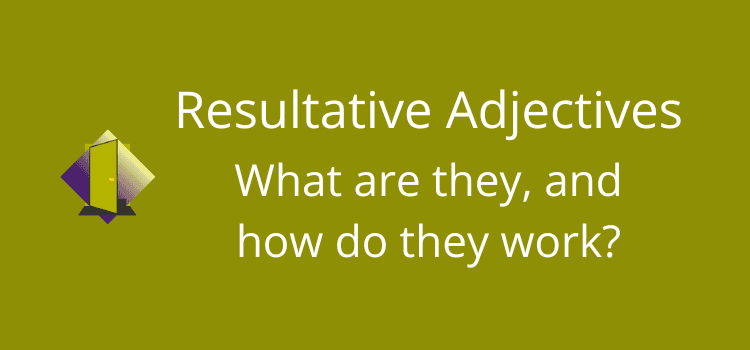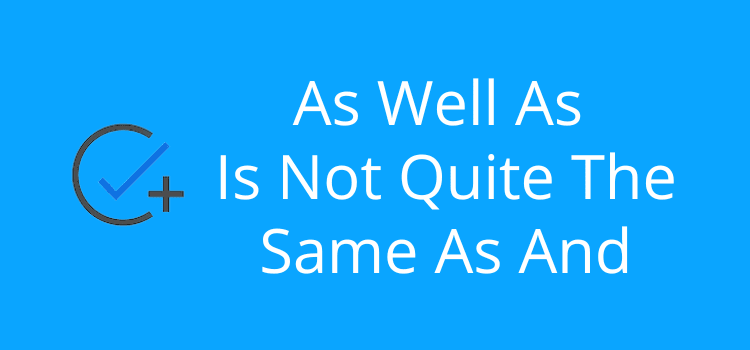
In the phrases, the door creaked open, and the door slammed shut; the words open and shut are resultative adjectives.
Perhaps it’s not a grammatical term you are familiar with, but you probably use it quite often.
In the examples above, you can see that the adjectives, open and shut, are derived from infinitive verbs.
However, there are many different ways to use this structure to describe the result or end state of an action.
What are resultative adjectives?
In grammar, resultative indicates that something or someone changed in state as the result of the completion of an event.
However, the form can cause a little confusion.
The door creaked open.
You sometimes see questions about this specific phrase, asking if creaked and open are both verbs.
The quick answer is no because only the verb to creak is in the past form.
If you break the phrase down, the door started closed. It creaked for a little while, and then it was open.
So, open is an adjective describing the end result of the action of the verb to creak.
Here’s a more straightforward example.
Roger painted the door purple.
Here, the action of painting resulted in the door changing its state. We don’t know what color it was before, but we know it is purple now.
How to use adjectives as a result
Most adjectives we use are descriptive and define inherent qualities.
A blue car, a quiet weekend, or a happy puppy are all descriptive adjectives.
But resultative adjectives focus on the transformation caused by the verb from one state to another.
It’s not a critical grammar point, simply a handy one to know.
Here are some quick examples.
Heavy rain from the storm flooded the streets, leaving all roads impassable.
The rejection letter left him feeling defeated.
He folded the carton flat.
You can also use a full infinitive with to as an adjective.
We used a larger font to make reading easier.
She gathered enough courage to speak in public.
They put in a lot of hard work to achieve their goals.
As you can see from these examples, it’s an easy structure to use.
However, it’s not one that you would use frequently.
When to use resultative adjectives
You can use them to convey the purpose behind an action.
The chef prepared a meal to impress the critics.
In this sentence, to impress illustrates the chef’s intention.
Another use is to highlight an ability or capability resulting from an action.
The marathon runner trained hard to endure the long race.
You can also show a resultant state.
The artist painted the walls to create a vibrant atmosphere.
The team worked diligently to establish a harmonious atmosphere.
As you can see, using the infinitive to add a layer of clarity to your writing is an easy form of adjective to use.
All you need is a little imagination.
Forms of adjectives
In most sentences, you can use three adjective types.
1. The bare infinitive
During the storm, the living room window flew open.
2. The full infinitive.
The book was poorly written, making it difficult to read.
3. A regular adjective.
The rain washed the sandstorm dust away, leaving the streets clean.
Summary
Grammar is an enormous subject, and if you are just starting on the journey of learning it as a writer, it can sometimes seem insurmountable.
But it’s not the case at all.
All writers, whether new or experienced, are learning about grammar all the time.
I love grammar, and I add to my knowledge every day. Of course, this means that I don’t know everything and never will.
But the reason I wrote this short article is because I recently answered this question.
What is the verb in this sentence? Howled or open?
The wind howled, and the window flew open.
I knew open was acting as an adjective, but I was uncertain about the correct terminology.
When I checked my usual references, they all confirmed that open was an adjective. But what type?
It took me a while, but finally, I discovered the precise term, resultative adjectives.
That’s what fascinates me about grammar. I’m always and continually learning.
The question gave me an opportunity to learn something new.
Related Reading: Limiting Adjectives: What They Are and How to Use Them



